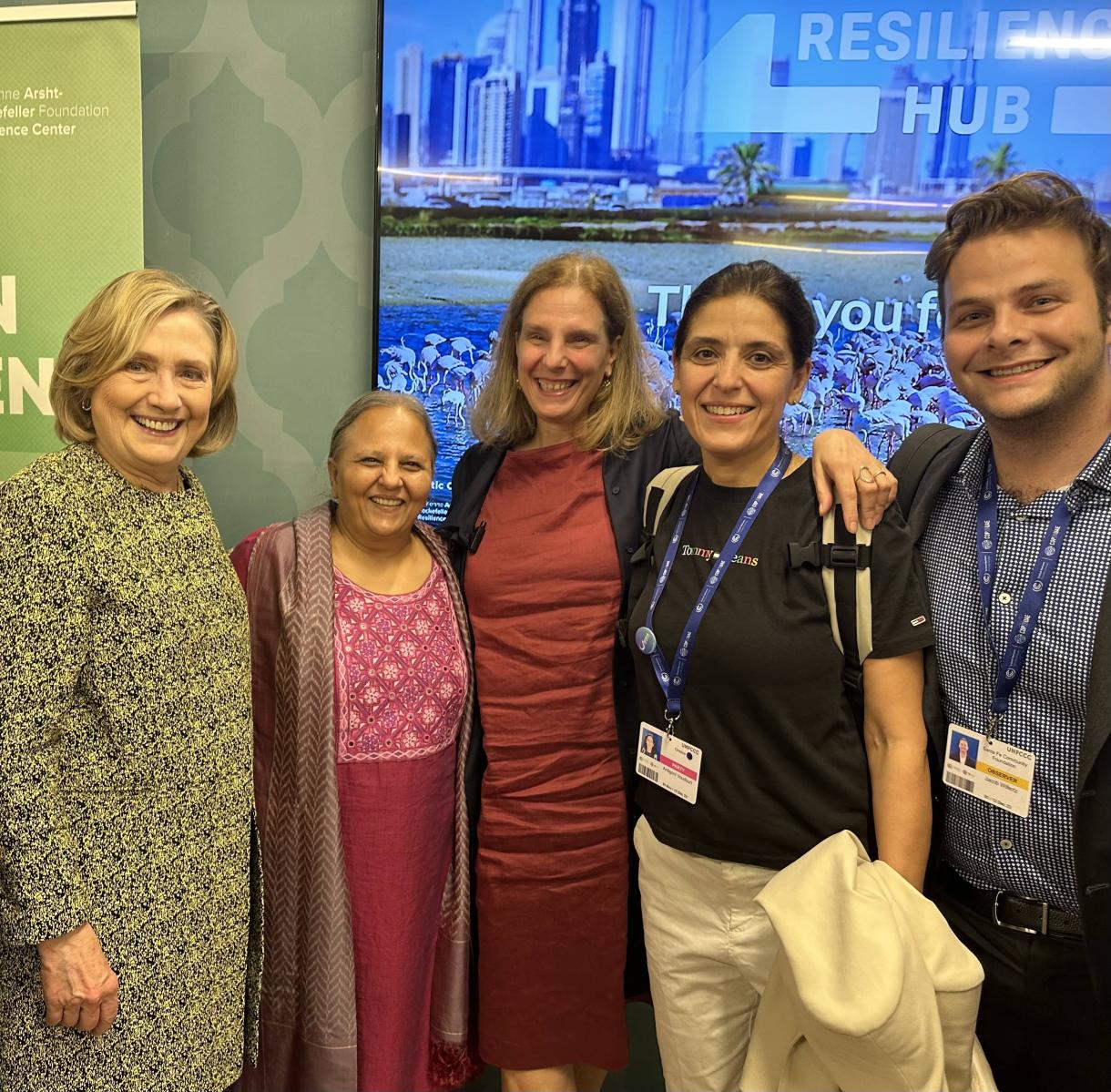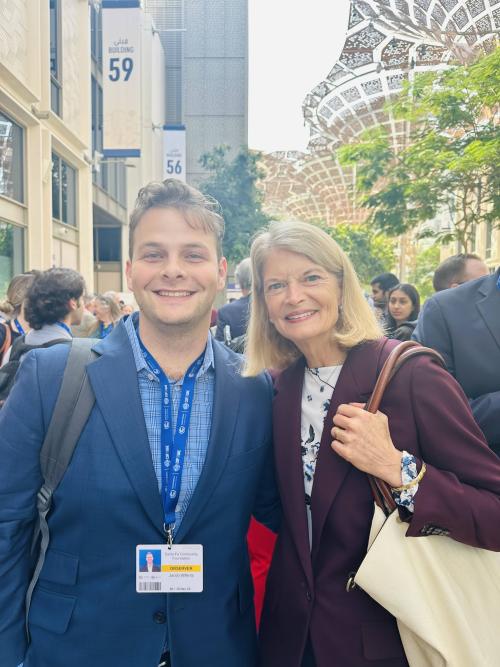

By Jacob Wilentz MPP/MEM’24

For the fourth year in a row, I attended the United Nations Climate Change Conference (after attending COP25 in Madrid, COP26 in Glasgow, and COP27 in Sharm el Sheikh). This year the 28th Conference of the Parties of the United Nations Framework Convention on Climate Change (UNFCCC), more commonly referred to as “COP28," was in Dubai.
At this year’s COP, I have been following five main topics, including current and future ESG regulations, shipping decarbonization, liquefied natural gas (LNG) deployment nationally and abroad, state and local government participation in the negotiations, and successful public-private-philanthropy partnerships in advancing ambitious climate goals.
I especially became interested in subnational participation in the conference after taking Professor Mac McCorkle’s North Carolina policy and politics class. From mentorship and my ongoing friendship with Professor Joel Fleishman, I became more interested in the last topic around partnerships.

Additionally, I have been gathering information on the Arctic, as my Master’s Project for the Master of Public Policy focuses on heightened surveillance in the region as human activity increases.
I have always been fascinated with the Arctic and Antarctic spaces, as they are both critical to a healthy, sustainable climate. Yet, these areas also denote exceptional cases of international governance, cooperation and sometimes conflict. One of my favorite courses at Duke has been Ocean Coastal Law and Policy, and it has been so wonderful to put my newly acquired science and policy skills into action at COP.
One of my favorite panels at COP28 was Empowering Communities: Women at the Heart of Climate Resilience. This was a discussion with Secretary Hillary Rodham Clinton, Former Secretary of State and Arsht-Rock Global Ambassador for Heat, Health and Gender, Reema Nanavaty, Director of the Self-Employed Women’s Association (SEWA), and Eleni Myrivili, Global Chief Heat Officer on the solutions that empower women, advance gender equity, and strengthen community resilience.
Another panel I enjoyed was U.S. Senators Discuss Congressional Support for Climate Action, featuring a cohort of senators speaking about advancements to U.S. climate commitments, opportunities and challenges are ahead for the remainder of the 118th Congress; and what should Congress prioritize in the years ahead to ensure a lasting U.S. commitment to addressing the climate crisis. The represented senators are some of the fiercest climate champions in the U.S. Senate who have fought for decades to advance comprehensive U.S. climate action. They have experienced both the high and lows of this ongoing effort.

Connections to tech
Finally, I have a passion for technology policy, and I have been lucky to explore this interest throughout my time at Sanford. It is interesting to see Microsoft, Google, Netflix, IBM, Amazon, and other major technology companies take a larger role in the negotiations and in enacting ambitious climate goals. I find it fascinating how technologies such as Google’s Nest can enhance energy efficiency and drive more sustainable behavior, as well as companies like Netflix intentionally designing more sustainability-oriented content to increase education across their viewers and accurately depict the climate crisis. There is a clear connection between tech policy, national security and environmental policy, the three main areas I studied at Sanford. There are many future questions to explore at the intersection of these areas.
It has been a thrill to again participate in COP. I have had the opportunity to connect with Sen. Lisa Murkowski, Sen. Tom Carper, Rep. Chrissy Houlahan, Barbados Prime Minister Mia Mottley, former U.S. Secretary of State Hillary Clinton, and many others seeking solutions to climate change. And I must add: the Duke alumni network is truly amazing! My fellow students and I have met many Dukies along the way.
Jacob Wilentz is pursuing dual degrees of MPP/MEM. Wilentz is exploring a multitude of issues at Duke, especially the intersection between tech policy, national security and environmental policy.